When an unexpected power outage strikes, are you prepared to keep things running smoothly in your home? Power outages, whether caused by heavy storms, infrastructure failure, or relocation, disrupt daily activities, leaving you with rushed solutions. This is where portable generators come into the picture. Small and handy, these gadgets promise to bridge the transition period from binding power to essential appliances, affording some peace of mind. Before making your purchase, you may wonder: Do portable generators really pay off?
This article discusses the pros and cons, as well as some key considerations, regarding the ownership of a portable generator. We’ll examine everything to make an informed decision, from understanding how they operate to determining if they meet your specific needs. Whether for protecting your home, completing work in an emergency, or simply being prepared for the unforeseen, you’ll find all the information you need right here.
🔋 Benefits of Backup Power
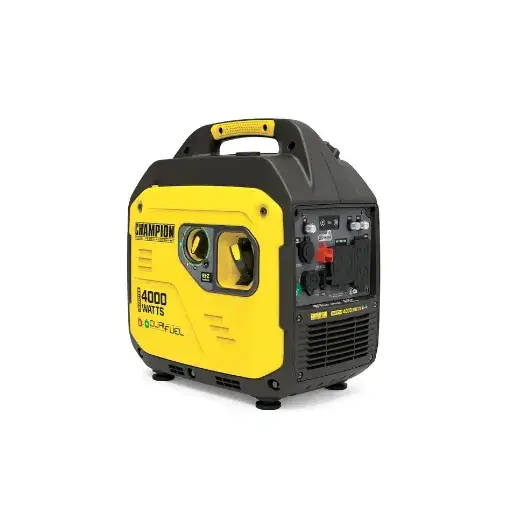
Provided below are some main benefits, among others, of backing up a power source in various scenarios:
⚡ Uninterrupted Power Supply
A standby power generator protects life support systems in operation after a power disruption, as well as refrigerators, drying up in storage, communication and detection instruments, etc.
🚨 Emergency Preparedness
You may never truly have peace of mind if you constantly worry about a storm causing a power outage. Therefore, it is better to have a reliable power supply at home during hurricanes, floods, or any other unforeseen circumstances.
💼 Productivity Maintenance
Maintaining productivity is a primary function of the backup power system for individuals working from home or small business owners.
🏠 Comfort and Convenience
The generators keep the lights on and ensure that heating, cooling systems, and entertainment devices continue to function, so people do not feel like things are out of the ordinary during power outages.
Reliable Backup Power for Essential Appliances
Portable generators can power essential items that people want to have, such as refrigerators, freezers, lights, and medical appliances. Depending on their wattage capacity, portable generators can support other essential machines, such as sump pumps, heating, or cooling systems in offices. How to determine what generator is suitable for your needs? Add up the total output wattage of the devices you want to run, and ensure that the chosen generator has that much capacity. Thought given in advance will make for easy working during the outage and extra confidence in a crisis.
Mitigating Risks During Emergencies
In the event of an emergency, preparation and effective decision-making can help mitigate risks and minimize the impact. It is essential to develop a communication plan that all family members or individuals in a household are aware of, enabling them to stay connected during power outages or other emergencies. Besides having a communication plan, assembling an emergency kit with all necessary items is crucial, which may include nonperishable food, water, flashlights, extra batteries, a first aid kit, and essential medications. Refresher drills on safety procedures, such as the fire escape plan or natural disaster measures, should be conducted regularly. Using reliable sources of information and monitoring all local alerts will ensure that one responds effectively and follows warnings related to rapidly evolving situations.
🔧 Versatility of Portable Generators
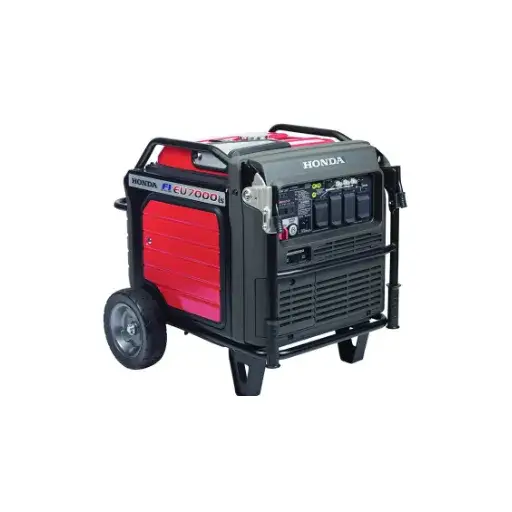
Portable generators stand among the most versatile tools, ensuring that power is provided in various circumstances. Usually, preparing for occasions of blackouts, at which time generators will see to the operation of life-saving devices such as refrigerators, lights, and medical equipment. Also, they are ideal sites for outdoor activities, construction, and camping, where one cannot really ask for electricity. Many are designed for ease of transport, being lightweight and compact, making them a suitable option for various emergencies and leisure activities.
Use Cases for Job Sites and Recreational Activities
Portable generators play a crucial role in both job sites and recreational activities by providing reliable and efficient power solutions in areas without electricity. On job sites, they are absolutely vital when using tools, machines, and illumination, allowing even the remotest or undeveloped areas of the site to continue working on further assignments. In recreational activities, portable generators provide a power supply for cooking appliances, sound systems, and mobile charging stations, thereby adding the finishing touches to an outdoor event, an RV outing, or a camping experience. This versatility, combined with an easy life, makes them equally essential to both working professionals and outdoor adventurers, providing time and space for productivity and enjoyment away from the constraints of electricity.
Choosing the Right Generator for Your Needs
Some of the generator selection criteria are power, fuel, and application. Start by determining the total wattage required to power your various devices. Recreational activities may use portable generators with smaller outputs (approximately 2,000-4,000 watts). In contrast, more heavy-duty uses, such as construction sites or larger events, may require generators rated at 7,000 watts or above.
Consider the fuel that suits you best: gasoline, propane, or dual-fuel, each with its advantages in terms of availability, efficiency, and storage convenience. Noise rating is a crucial consideration when selecting a model for home or camping use; quieter models can significantly enhance the experience. Other features to look for include inverter technology for safe use with sensitive electronics, portability features, such as wheels or handles, and built-in safety features. Customer feedback will also help you determine the generator that best fits your requirements and budget.
💰 Cost-Effectiveness of Portable Generators
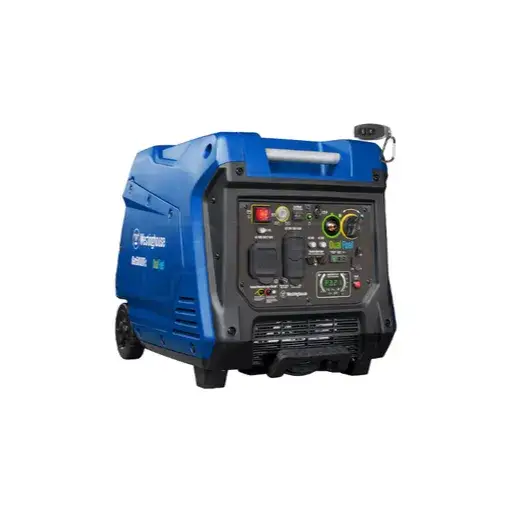
A good, affordable alternative for electrical backup is portable generators, particularly during emergencies or when participating in an outdoor event. Their affordability is primarily attributed to producing dependable electricity with minimal upfront installation costs. Additionally, an efficient model will consume fuel more economically, thereby lowering its operational expenditure. Thus, if you invest in a generator with energy-saving features, such as an eco-mode, your savings will increase further. Therefore, portable generators stand as an ideal choice for many power needs.
Price Ranges for Different Models
| Generator Category | Price Range | Features & Use Cases |
|---|---|---|
| Low-End Models | $300 – $600 | Designed for running small appliances or lightweight items for outdoor use |
| Mid-Range Models | $600 – $1,200 | Higher output power, multiple outlets, noise reduction features |
| Top-Tier Models | $1,200 – $3,000+ | Heavy-duty or whole-house backup power sources with advanced features |
💡 Pro Tip: In the selection process, it is crucial to consider your power requirements and personal budget. Also, remember that money must be allocated for add-ons such as warranties and accessories.
Comparing Costs with Whole-Home Generators
📱 Portable Generators
- Lower initial investment
- No installation costs
- Portable and versatile
- Manual operation required
🏠 Whole-Home Generators
- Higher initial expense
- Professional installation required
- Automatic operation
- Powers entire house
The costs of portable generators are not favorable when compared to those of whole-home standby generators. A portable generator typically ranges in price from $600 to $3,000, depending on its features and capacity. On the other hand, whole-home generators are almost always on the higher end. Having a whole-home generator installed can be a costly endeavor. It is, by definition, permanently installed and designed for automatic transfer to the entire house in the event of a power outage. This results in an initial expense of around $5,000, and installation costs, including miscellaneous fees, can easily exceed $15,000. This higher expense is warranted since such whole-home generators offer more significant outputs, ease of use, and reliability simultaneously. Therefore, the ultimate choice comes down to one’s requirements and budget, along with the amount of power coverage needed when power is out.
⭐ Real-Life User Testimonials
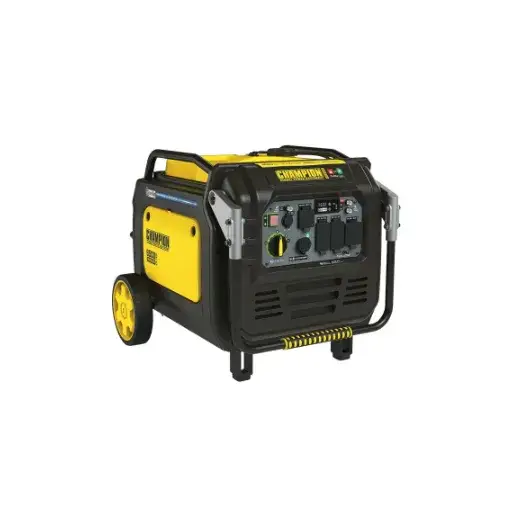
🌪️ “Peace of Mind During Storms”
“I live in an area of frequent hurricanes, and placing a standby generator in my home is without any doubt the best decision I’ve ever made. It powers the whole house seamlessly, including the AC, the greatest relief during the pressingly humid months.”
— Sarah T., Florida
❄️ “Reliable for Long Outages”
“After a week-long power outage last winter, I decided to buy a whole-home generator. It kicks in automatically to keep our house warm and functioning without any issues. Convenience and reliability, a good investment certainly worth every cent.”
— James L., Minnesota
💻 “Perfect for Essential Coverage”
“As a WFH (work from home) person, a portable generator has been worth every bit during power cuts. It won’t cover the entire house, but it covers enough to keep my PC, Wi-Fi, and a couple of other essential appliances running.”
— Angela K., California
Homeowner Experiences During Power Outages
Generators have become a necessity for modern homeowners, who face the challenge of frequent and unpredictable power outages. Backup generators for home use have, in fact, experienced a sudden surge in interest in recent years, as society has come to realize the importance of such a mechanism during power outages. What most users point out in testimonials is that generators provide peace of mind to customers, as they can be used to keep essential equipment such as refrigerators, medical apparatus, heating systems, and even internet connections running. Essentially, demand generators support everyday life during blackouts, ensuring minimal interruption and making them a reliable power generation choice for modern homes.
Feedback from Campers Using Inverter Generators
Most of the campers would commend inverter generators for being compact, quiet, and energy-efficient to some extent. Many have come to consider them their ticket to enjoying the outdoors while still powering essential electronics, such as lights, electric cookers, and phone chargers. The low noise output is highly valued because one would want that tranquility; a peaceful ambiance is a key part of the camping experience. Inverter generators require little space to carry, making them highly mobile and convenient, even for hard-to-reach spots. These factors, coupled with good fuel efficiency and clean power, make these inverter generators the most dependable outdoor buddies for convenience and reliability.
🎯 Expert Advice for Choosing the Right Generator
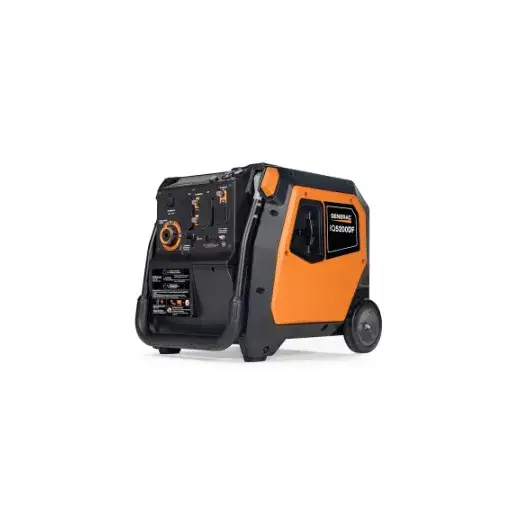
- Assess Your Power Needs: Begin by identifying the specific appliances or devices you wish to power. Total up the wattage you think you will be using, including both the starting and running wattage of larger equipment.
- Prioritize Portability: If you plan to use a generator while camping, tailgating, or participating in any other outdoor activity, choose a small and lightweight one for easy transportation.
- Look for Fuel Efficiency: Opt for a generator that can run for an extended period on a single tank of gas to minimize interruptions for refueling, especially during prolonged use.
- Check Noise Levels: Quiet operation is required within a campground or a residential zone. Check it out to see whether its decibel level meets your requirement.
- Ensure Clean Power Output: If you want to power delicate electronics, opt for an inverter generator that supplies clean and stable power, thereby preventing damage to the devices.
- Consider Durability and Warranty: A straightforward choice is to select a generator from a trustworthy brand, which provides assurances and has good reviews that support its long-term use.
Assessing Your Power Needs
When assessing my power needs, the first step that comes to mind is to list all the devices and appliances I want to run with the generator. I note down their wattage requirements, i.e., the starting and running wattage, so that the generator can sufficiently support the load. And then, I think about my need to power any sensitive electronics, which may require a generator that produces clean energy. By accurately understanding my exact power requirements, I can select a generator that best suits my demand.
Factors to Consider: Fuel and Portability
⛽ Fuel Options
- Gasoline: Readily available but limited shelf life
- Propane: Cleaner option, longer storage period
- Diesel: Greater fuel economy, more durable, but heavier
- Dual-fuel: Flexibility to switch between fuel types
🚚 Portability Features
- Weight and size considerations
- Wheels and handles for easy transport
- Compact design for storage
- Intended use scenarios
With fuel type defining how convenient and efficient a generator might be, it is perhaps the most crucial factor to consider before selection. Most generators are gasoline-operated. Such fuel is readily available; however, it has a limited shelf life. Propane is a cleaner option than gasoline, as it can be stored for a much longer period. However, the drawback with it is that one usually needs to procure those external tanks. Diesel generators, in general, have greater fuel economy and other durable qualities, but they can be heavier and louder. In the back of one’s mind could be the trade-off of having switchable-fuel generators, which can operate on either dual-fuel or even tri-fuel, choosing one to interface with according to the best availability at any given time.
The portability factor is equally important; this becomes particularly significant if one requires a generator for outdoor recreational activities, job-site work, or for virtually any emergency. The smaller and lighter the generator, the easier it is to transport and store. In contrast, larger models often have wheels and handles to facilitate movement. In any case, assessing the fuel options of the generator alongside its portability will go a long way in helping you choose an appropriate unit based on your needs and intended use.
⚠️ Safety Guidelines for Operation and Storage
🌬️ Operate in Well-Ventilated Areas
Generators must always be run outdoors, drawing away from any windows, doors, or vents, to prevent the buildup of carbon monoxide. This colorless and odorless gas is capable of killing. Never operate a generator inside any building or a partially enclosed space, such as a car garage, even if the area is well ventilated.
⚡ Prevent Electrical Hazards
Use heavy-duty extension cords rated for outdoor use to avoid overloading or potential electrical fire hazards. Ensure that these cords are in good shape and properly grounded. NEVER plug a generator directly into a house circuit without having a transfer switch installed by a qualified electrician.
⛽ Refuel Safely
Always turn off the generator and let it cool before refueling to avoid fuel spills and fires. Use only fresh, clean, and stabilized fuel, as recommended by the manufacturer. Store fuel in a securely closed container, preferably away from any living areas.
🔧 Perform Regular Maintenance
Follow the manufacturer’s regular maintenance schedule, which typically includes checking the oil level, replacing the filter, and inspecting the spark plugs. Regular maintenance, in turn, ensures that your generator will work efficiently and safely.
📦 Store Properly When Not in Use
When storing the generator for an extended period, empty the fuel system or top it up with a fuel stabilizer to prevent clogging. Store the generator in a cool and dry place, away from moisture and dust. Place a cover on it that allows the unit to breathe, thereby avoiding corrosion and condensation.
📚 Reference Sources
Here are three authoritative sources that would directly help to check the accuracy of the article about whether a portable generator is worth it or not:
GRENGINE – An Evolution in Portable Power
The present paper highlights how and when people use these devices and how they benefit them, such as powering or discharging tussles.
Economics and Market Prospects of Portable Fuel Cells
The market introduction and benefits of portable generators and microfuel benches are reviewed, with a focus on explicitly highlighting their economic and environmental advantages.
Multi-Criteria Decision Analysis and Cost–Benefit Analysis
Outlines power generation cost-benefit methodologies that are employed in assessing the interest of portable generators for a given case.
❓ Frequently Asked Questions (FAQs)
What are the benefits of using a portable generator?
Portable generators offer a range of benefits, including the ability to provide power during outages, keep your home functioning, and support various applications, such as powering tools or appliances. They can be handy for those living in areas with frequent outages or during extended blackouts.
How does an electric-start portable generator work?
An electric start portable generator utilizes a battery to start the engine, making it easier to operate compared to traditional recoil starters. This feature is especially convenient for users who may struggle with manual starting, ensuring the generator is ready to go when needed.
Can a portable generator run a fridge and a heater simultaneously?
Yes, many modern portable generators can run a fridge and a heater simultaneously, provided the combined wattage does not exceed the generator’s output capacity. It’s crucial to check the wattage requirements of both appliances before using them together.
What should I consider when choosing the size of a portable generator?
Portable generators come in various sizes, and it’s essential to choose one that meets your power needs. Consider the total wattage required by the appliances you intend to run, and factor in the starting wattage, which can be higher for some devices, such as power tools and well pumps.
Are dual-fuel portable generators worth the investment?
Dual-fuel portable generators are often worth the investment as they provide the flexibility to run on either gasoline or propane. This can be advantageous during fuel shortages or emergencies, and propane generally has a longer shelf life than gasoline.
How do I maintain my portable generator?
Maintaining your portable generator is crucial to prolonging its lifespan. Regular maintenance includes checking the oil levels, inspecting the air filter, and ensuring the spark plugs are in good condition. Additionally, storing it outdoors and protected from the elements can prevent potential damage.
Can I use a portable generator for camping trips?
Absolutely, portable generators are perfect for camping trips. They can power lights, charge devices, and even run small appliances, making your camping experience more comfortable. Ensure it is installed outside to avoid fume buildup in enclosed spaces.
What are some common repairs needed for portable generators?
Common repairs for portable generators include addressing issues with the starter, engine, and electrical components. Regularly checking the fuel system and ensuring no pipes or connections are clogged can also help prevent more significant problems.
How much fuel does a portable generator consume?
Fuel consumption varies by model, but many portable generators typically consume about a gallon of fuel per hour at half load. Understanding your generator’s fuel efficiency is essential for planning how long you can operate it during an outage.
